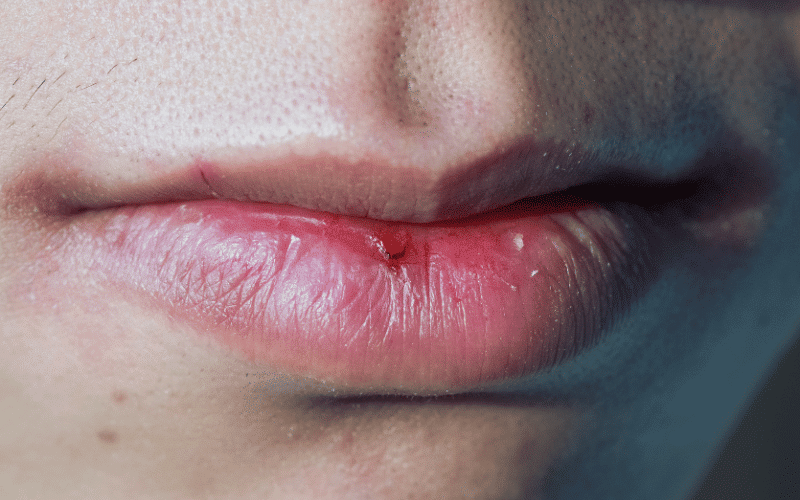Symptom 8: Swollen Tongue and Cracked Lips

Iron deficiency anemia can also cause a swollen tongue, known as glossitis, and cracked lips. Iron is essential for maintaining the health of your oral tissues, and a deficiency can lead to inflammation and swelling of the tongue. This inflammation can cause your tongue to appear smooth, glossy, and red, with a loss of the normal papillae that give it its rough texture. This change in appearance can make it difficult to eat, speak, or swallow and may cause discomfort or pain.
The swelling of the tongue can also lead to alterations in your sense of taste, as the taste buds on your tongue may become less sensitive due to the inflammation. This can make food taste bland or unappealing, potentially leading to a decreased appetite and further exacerbating the issue of iron deficiency anemia.
Cracked lips are another common symptom of iron deficiency anemia. The corners of the mouth, known as the commissures, can become dry, cracked, and painful. This condition, called angular cheilitis, can make eating, speaking, and even smiling uncomfortable. The cracks can also become infected, causing additional pain and discomfort.
To address the issues of a swollen tongue and cracked lips, it’s essential to consult with a healthcare provider who can assess your symptoms and determine if iron deficiency anemia is the underlying cause. If so, they can recommend appropriate treatments, such as iron supplementation or dietary changes, to help restore your oral health and alleviate your symptoms. Maintaining proper oral hygiene and using lip balms or ointments can also help manage these symptoms while addressing the root cause. (8)